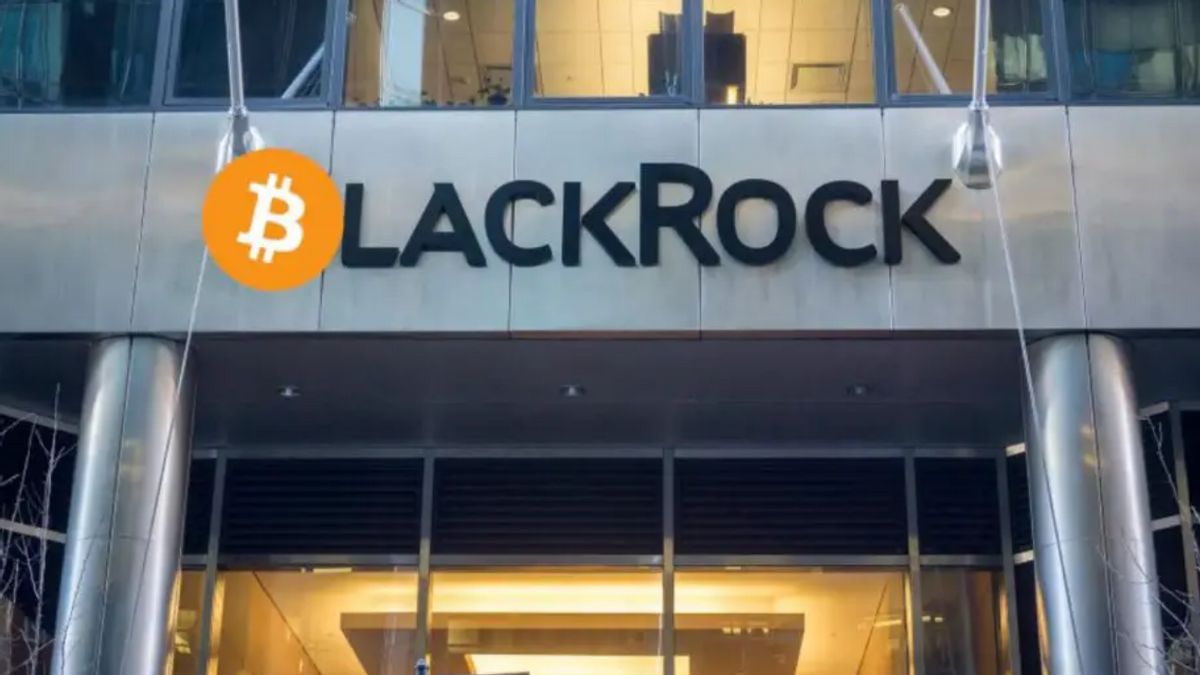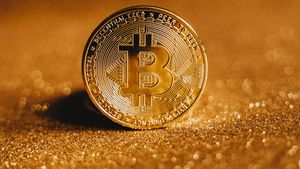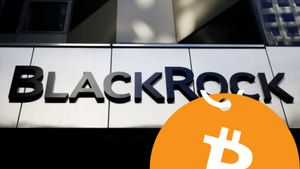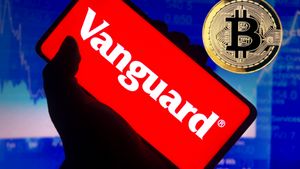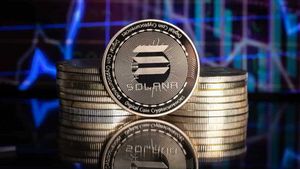JAKARTA - The cryptocurrency market is experiencing major changes due to the entry of financial giants such as BlackRock and Fidelity. These two companies have submitted a request to launch a spot-based bitcoin exchange fund (ETF), which is a financial product that follows bitcoin prices in the spot market. This product is expected to attract institutional and retail investors who want to invest in bitcoin without having to buy and store it directly.
BlackRock, who is the world's largest asset manager with total assets that reached US$8.59 trillion or around Rp133,300 trillion by the end of 2022, has shown interest in bitcoin for a long time.
BlackRock CEO, Larry Fink, once said that bitcoin has the potential to become a global asset. However, the company only submitted a request for an ETF bitcoin spot in June 2023, after waiting for the development of regulation and market conditions.
According to Alex Mascioli, CEO of Trade The Chain, a crypto data analysis platform, BlackRock's move is not without reason. He said that BlackRock has a long-term strategy involving the purchase of large amounts of bitcoin through the ETF.
This can increase bitcoin demand and prices, as well as reduce the supply available in the market. Mascioli added that BlackRock had invested around US$3 billion or around Rp46.5 trillion in one day for bitcoin ETFs, showing how much interest they had.
The Impact Of Bitcoin ETF On Prices And Adoption
The launch of the spot's bitcoin ETF is expected to have a positive impact on bitcoin prices and adoption. Rob Nelson, the host of the Roundtable show, a discussion show on crypto, said that the spot's bitcoin ETF could increase market liquidity and transparency, as well as balance bitcoin's offerings and demand.
He also said that the spot's bitcoin ETF could expand market reach by involving synthetic markets and derivatives, which allow investors to speculate or hedge against bitcoin price movements.
In addition, spot bitcoin ETFs can also increase bitcoin adoption in traditional finance. bitcoin spot ETFs can attract investors looking for alternative assets that are not correlated with the stock market or bonds, as well as investors who want to diversify their portfolios with digital assets.
The spot's bitcoin ETF can also offer convenience and security for investors who don't want to bother buying and storing bitcoin directly, as well as avoiding risks such as hacking, losing their personal keys, or money laundering.
SEE ALSO:
Bitcoin ETF Offer Competition
BlackRock and Fidelity are not alone in competing to launch spot bitcoin ETFs. Several other companies, such as Bitwise, Hashdex, VanEck, ARK Invest, and Grayscale, have also applied for spot or similar bitcoin ETFs. Each company seeks to offer the best and most attractive products for investors, both in terms of cost, performance, and marketing.
One of the factors that distinguish BlackRock and Fidelity from their competitors is their marketing approach. These two companies target a more mature and experienced audience, often referred to as 'boomer', which is the generation born between 1946 and 1964. They use more formal and informative language, and do not use crypto terms or pop culture references that may be less familiar to their audience.
For example, BlackRock's first video advertising for the iShares Bitcoin Trust ETF (IBIT) features a BlackRock executive explaining the value of bitcoin as a rare, decentralized, and inflation-resistant digital asset.
This approach is different from other ETF publishers who are more targeting younger and enthusiastic audiences, often referred to as'millennial', which is the generation born between 1981 and 1996. They use a more relaxed and more attractive language, as well as use striking images and pop culture references that may be more familiar to their audience.
For example, Bitwise's first video advertising for Bitwise 10 Crypto Index Fund (BITW) features a man wearing a t-shirt with the words 'HODL', which is a slang term in the crypto community which means holding crypto assets in the long term.
The English, Chinese, Japanese, Arabic, and French versions are automatically generated by the AI. So there may still be inaccuracies in translating, please always see Indonesian as our main language. (system supported by DigitalSiber.id)
